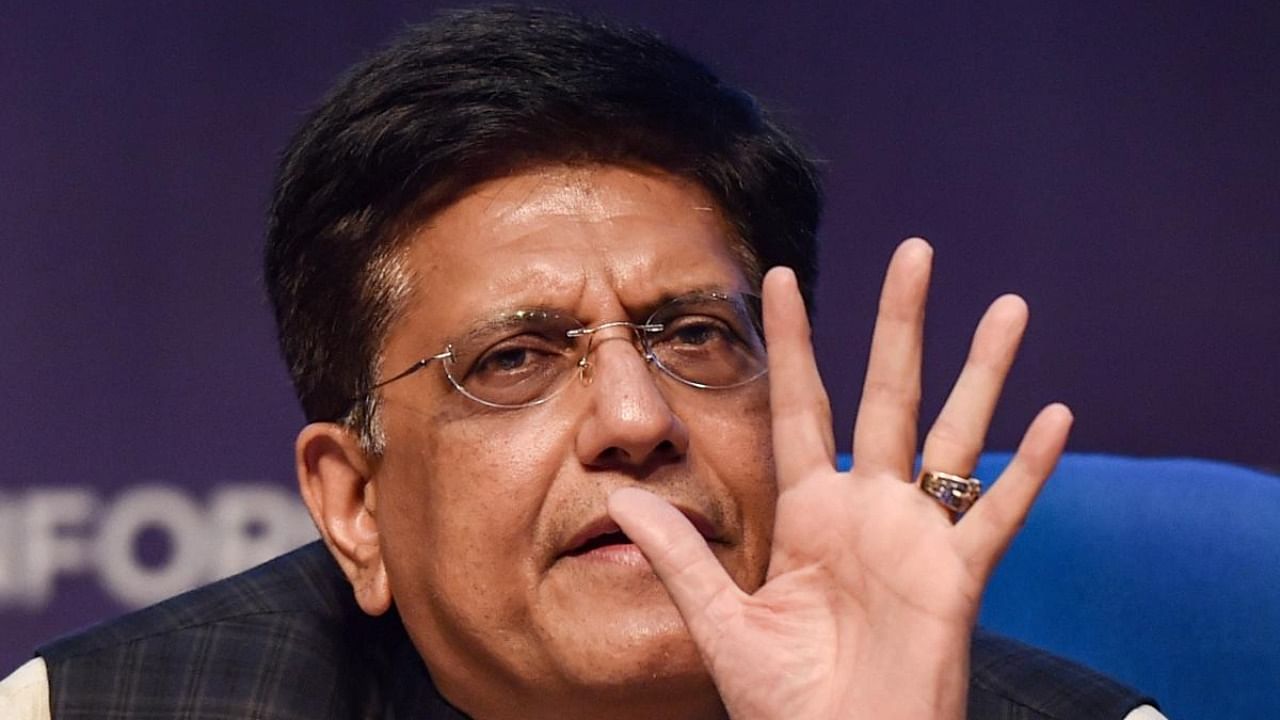
India on Sunday managed to get support from the other G20 nations in seeking faster approval of Covid-19 vaccines by the World Health Organization (WHO).
Even as Prime Minister Narendra Modi’s government is quietly nudging the WHO to expeditiously grant the much-awaited approval to the Covaxin developed by Bharat Biotech, New Delhi could get all the G20 nations to agree on the need to speed up the process for clearing vaccines for emergency use.
“It has been agreed that everybody will help to optimise the processes and procedures of the WHO for vaccine approval and emergency use authorisation and to strengthen the WHO to recognise vaccines faster,” Piyush Goyal, Commerce and Industry Minister, said in Rome.
He was briefing journalists shortly after the G20 summit concluded with the adoption of the “Rome Declaration”.
Goyal, New Delhi’s ‘Sherpa’ for the G20 summit, said that the leaders agreed that the Covid-19 immunisation was “a global public good” and the recognition of the Covid-19 vaccines, deemed to be safe and efficacious by the WHO, would be mutually accepted by all the members of the bloc, subject to the national laws.
Modi, himself, subtly conveyed to the leaders of the other G20 nations on Saturday that New Delhi’s ability to help end vaccine inequity around the world would depend much on the pace at which the WHO would grant approval to the Covaxin and other Covid-19 jabs developed and manufactured in India.
India has been driving home the point that the global recognition of the Covaxin would not only make it easier for its citizens who were administered with the jab to travel abroad, but would also allow it to help support inoculation programmes in other developing nations.
The WHO’s Technical Advisory Group for Emergency Use Listing (TAG-EUL) of vaccines is likely to meet again next week to review the additional clarifications provided to it by the Bharat Biotech.
“India has always taken its obligations to the world seriously. Today, on this G20 platform, I want to tell you all that India is preparing to produce more than five billion vaccine doses for the world next year,” Modi said participating in the first session of the G20 summit. “This commitment of India will go a long way in containing the pandemic around the world. Therefore, it is necessary that the WHO grants its approval to the vaccines made in India.”
The Prime Minister also had an interaction with the WHO Director-General Tedros Adhanom Ghebreyesus at the venue of the summit in Rome on Saturday.
Bharat Biotech on April 19 last submitted to the WHO its Expression of Interest for inclusion of Covaxin in its Emergency Use List. But the United Nations health agency has not yet approved the vaccine for emergency use to contain the Covid-19 pandemic.
The WHO’s TAG-EUL had on October 26 asked Bharat Biotech for some additional clarifications, which it would review on November 3.
Also Read | India's net-zero pledge a bogus promise
The Covishield developed by the AstraZeneca PLC and the Oxford University and manufactured by the Serum Institute of India (SII), however, was put on the WHO’s EUL as early as February 15.
The Modi government has been worried over the unusual delay in obtaining the WHO approval for Covaxin. The senior officials of the Ministry of External Affairs have been in touch with Bharat Biotech executives. Foreign Secretary Harsh Shringla earlier this week said that the government was “carefully” keeping a tab on the process of putting Covaxin in the list of the vaccines cleared by the WHO for emergency use to contain the pandemic.
India is considered a world leader in the production of vaccines and, before Covid-19 swept the world, its companies manufactured over 50% of the jabs required for immunisation programmes against several diseases around the world.
The Modi government sent out 107.15 lakh doses of the Made-in-India vaccines to foreign nations as grant till April 22 this year, in addition to the 357.92 lakh doses exported commercially and 198.628 lakh doses contributed to the COVAX, an initiative launched by the WHO for equitable distribution of the antidote against the SARS-CoV-2 infection.
New Delhi paused its “Vaccine-Maitri” initiative after the shortage of the jabs came to the fore during the brutal second Covid-19 wave in India and slowed down the inoculation programme in the country itself. It, however, restarted sending out vaccines to other countries early this month.
Watch latest videos by DH here:
